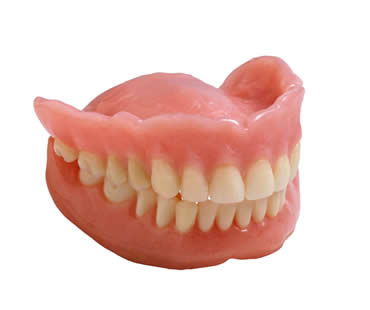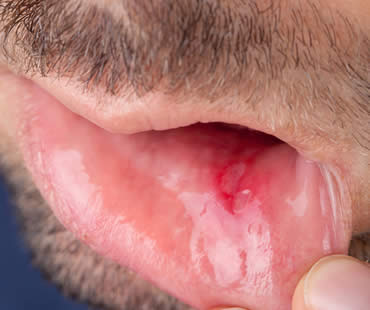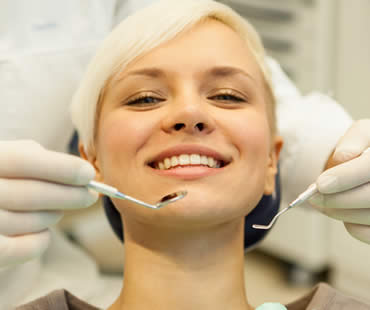
by Dr. Adkins | Dec 21, 2018 | Blog, Dental Topics 2, Kids Dentistry
It is vital for parents to understand not to wait until an oral health problem arises to begin dental treatment for their kids. Parents should be aware that in order for children to have the best chance for healthy teeth and gums throughout life, preventive dentistry is one of the keys.
Good oral care should begin when your child is an infant. As soon as babies start drinking milk, sugars can attack the gums even though there aren’t any teeth yet. To avoid damage, clean your child’s gums by gently rubbing them with a damp soft cloth. Around age one, schedule your child’s first appointment with the dentist. The examination will include looking for any issues, teaching home care, and allowing your child to become accustomed to a dentist setting.
As you child grows, dentists and parents can partner together to teach preventive dentistry habits to children. Dentists can show parents the ideal ways to guide children in proper brushing and flossing, and parents can ensure that the methods are carried out consistently at home. You and your dentist may decide together as your child grows whether to opt for dental sealants to help protect your child’s teeth from potential decay and cavities.
Another aspect of good oral health that parents should be involved in is providing nutritious foods for their children. Your dentist can educate your family on the best foods for your teeth and gums, as well as the foods and drinks to avoid. Some items are known to contribute to tooth decay, gum disease, and staining. Teaching your child to make healthy diet choices will promote a healthy mouth.
Preventative dentistry both at home and in your dentist’s office will make your child feel confident about oral care and become comfortable with the dentist. If the time comes for more extensive services, your child will likely trust the dentist and have less apprehension about the dental visit. Good preventive care, however, helps avoid problems and your child will be less likely to encounter major problems requiring painful procedures and lots of time in the dental chair.
We look forward to seeing you in our McDonough dental office

by Dr. Adkins | Dec 14, 2018 | Blog, Dental Topics 2, Dentures
If you have lost all of your teeth or just a few, you are probably a good candidate for dentures. Dentures, also known as removable prosthodontics, are used for the dental restoration or replacement of missing or broken teeth. You may want to consider dentures if any of the following apply to your situation:
- You have very few remaining teeth and they are in poor condition.
- You have suffered bone loss in your mouth so severe it precludes you from considering dental implants.
- You have advanced gum disease that has resulted in the loss of multiple teeth.
- You have lost many teeth, and your remaining teeth are suffering from decay and receding gums.
- You are committed to practicing excellent oral hygiene in order to take good care of your dentures.
You may not be a good candidate for dentures if any of the following apply:
- You are a young patient whose jawbone has not fully developed.
- You grind or clench your teeth.
- You have a sensitive gag reflex.
- You are a smoker.
If you feel you are a good candidate for dentures, your dentist will evaluate the health of your teeth and gums and determine if full or partial dentures are the best choice for you. There are many factors to consider when having dentures placed, and your dental professional can help you make a decision that fits your needs and lifestyle. If you wish to regain oral functionality and improve your smile, dentures may be your answer to once again enjoying a full set of beautiful, natural looking teeth.
We look forward to seeing you in our McDonough dental office

by Dr. Adkins | Dec 7, 2018 | Blog, Dental Information, Dental Topics 2
Most people turn to mouthwash when they suspect their breath is bad and they want a quick boost. It’s true that mouthwash comes in handy for this purpose, but did you know that it offers other benefits too?
Reduces bacteria
Antiseptic and anti-plaque mouth rinses are intended to kill germs that cause gum disease, plaque, and bad breath. Swishing this type of mouthwash around your mouth after brushing has been shown to lower the bacteria levels, and therefore decrease your risks of the problems that bacteria can cause. It is especially helpful in senior adults or others who have trouble brushing and flossing their teeth.
Promotes healing
Rinsing with antiseptic mouthwash promotes natural healing of mouth and gum irritations, minor wounds, and canker sores. It removes debris that can irritate your mouth, and can also help reduce inflammations from dental and orthodontic appliances.
Adds fluoride
Some rinses contain fluoride, which helps prevent tooth decay and strengthen teeth. Studies have shown that using fluoride mouth rinses in addition to fluoride toothpaste gives you more protection against cavities than toothpaste alone. Fluoride mouth rinse is not suggested for kids under six years old because they might swallow it.
Relieves pain
Antiseptic mouth rinses have been shown to help reduce tooth pain, probably due to lowering the bacteria and inflammation in your mouth.
Helps with certain conditions
Dentists sometimes prescribe special mouth rinses designed for various oral conditions. This may include gum disease, high risk of tooth decay, or dry mouth. Also, oral rinses may be prescribed after periodontal treatments or oral surgery.
Supplements dental hygiene
Many dentists suggest making dental rinses part of your oral hygiene routine, but remember that it’s only a supplement to brushing and flossing regularly.
Our dental office is located in McDonough

by Dr. Adkins | Nov 30, 2018 | Blog, Dental Topics 2, Kids Dentistry
Proper dental care is vitally important for every member of your family. Children should begin visiting a dentist as soon as their first tooth erupts, which in most cases is by their first birthday. Your family dentist is trained to take care of both adult and pediatric dental needs. An experienced family dentist can offer a wide array of dental care services to the children in your family.
A family dentist can perform routine pediatric oral exams and twice yearly professional cleanings, as well as other preventative care such as treatment with fluoride and protective sealants. In the unfortunate case your child should suffer trauma to a tooth, your family dentist is available to treat a loose, broken, or knocked-out tooth. Your dentist can diagnose and treat gum disease, tooth decay and cavities as well as identify and treat misaligned or crooked teeth and jaw or bite problems.
Your family dental practice may also offer a variety of kid-friendly amenities to make visits to the dentist less stressful. Game rooms, televisions with kid videos, and treasure box treats are just a few of the things that might be available to help your child feel at ease.
As your child ages, there will be no need to switch dentists because your family dentist can treat your child from infancy to adulthood. Having the same dentist for your entire family makes life easier when it comes time to schedule routine examinations. Often you can schedule several family members at the same time. Your family dentist will be familiar with your entire family’s dental history, which is a major benefit of taking everyone to the same dentist.
When the time comes to choose a dentist for your children, you can feel confident your family dentist will provide a lifetime of excellent dental care.
Schedule your appointment at our McDonough dental office

by Dr. Adkins | Nov 23, 2018 | Blog, Dental Information, Dental Topics 2
Sores in or around your mouth are painful and unsightly. They can have a variety of causes, such as infections, irritation from orthodontics or dentures, and symptoms of another health problem. Here are descriptions of the most common mouth sores.
Cold sores
Also called fever blisters, cold sores appear around your lips, nose, or chin. These extremely contagious, fluid-filled blisters are caused by the herpes simplex virus type 1. Once you are infected with primary herpes, the virus remains in your body and occasionally flares up. Cold sores typically heal by themselves in about a week. Over-the-counter topical anesthetics may help, and your dentist may prescribe antiviral medications to reduce occurrences.
Canker sores
These small ulcers only appear inside your mouth. They are white or gray with a red border, and are not contagious. Experts are unsure of the exact cause, but suspect they are related to immune system deficiencies, viruses, or bacteria. Canker sores usually heal on their own in a week or two. It is advised to avoid spicy, hot, or acidic foods that can irritate the sore. Over-the-counter mouthwashes or topical anesthetics may help, and your dentist may prescribe antibiotics if a secondary infection occurs.
Thrush
Oral thrush, or candidiasis, is a fungal infection occurring when the yeast Candida albicans reproduces in great amounts. Common with denture wearers, it most often appears in people with weakened immune systems such as the elderly or ill. People with dry mouth or who are on antibiotics are also at greater risk for thrush. The key to controlling candidiasis is treating the condition that causes it. Dentures should be cleaned regularly and removed at bedtime, and dry mouth should be treated in an effort to lessen that condition.
Leukoplakia
Leukoplakia are thick, white patches that grow on the inside of your cheeks, gums or tongue. Common with tobacco users, they result from irritations from habits like chewing on your cheek or wearing ill-fitting dentures. Leukoplakia are also associated with oral cancer. Treatment focuses on addressing the reasons for the lesion, such as quitting smoking or replacing dentures.
If you live in the McDonough area contact us today

by Dr. Adkins | Nov 16, 2018 | Blog, Dental Topics 2, General Dentistry
You might think that the point of going to your general dentist is for cleanings and maybe an occasional filling. But you are wrong if you believe that’s all your dentist can offer you! A wide variety of treatments is available at a typical general dentist’s office.
Most visits to your general dentist include an initial consultation, thorough examination, and diagnostic tests if needed like dental x-rays. You’ll have the opportunity to express any problems or concerns you have, and your dentist will identify any issues that you might not be aware you have. You can also expect a meticulous professional cleaning to eliminate tartar buildup and stains that you may not have been able to get rid of at home.
You can expect these common procedures at many general dentistry practices:
- Fillings – to repair damage caused by tooth decay, often using composite resin material to provide a strong yet cosmetically appealing solution.
- Bonding – using composite resin to repair issues like cracks, chips, gaps or stains.
- Crowns – also called caps, these restorations are fitted over damaged or broken teeth to restore tooth structure and function, and to protect them from future damage.
- Bridges – to replace missing teeth, a bridge structure anchors an artificial tooth or teeth. Crowns fit over natural teeth on both sides of a gap, in which the artificial tooth replaces a missing tooth to provide a natural appearance and functional replacement.
- Dentures – if a number of teeth are missing, dentures are removable false teeth with the goal of functioning and looking like real teeth.
- Root canal treatment – when the interior pulp of a tooth is badly damaged or infected, this procedure removes the faulty portion and completely restores the tooth to avoid tooth loss.
- Teeth whitening – when teeth have become discolored with age, tobacco use, diet, or more, it can be very difficult to restore their white shade without the aid of professional whitening. General dentists may offer at-home kits or in-office whitening treatments.
- Maxillofacial treatments – mouth, jaw, or facial procedures are sometimes offered, including options like TMJ treatment or dental implants.
If you live in the McDonough area contact us today








 (470) 665-5292
(470) 665-5292  E-Mail Us
E-Mail Us 
